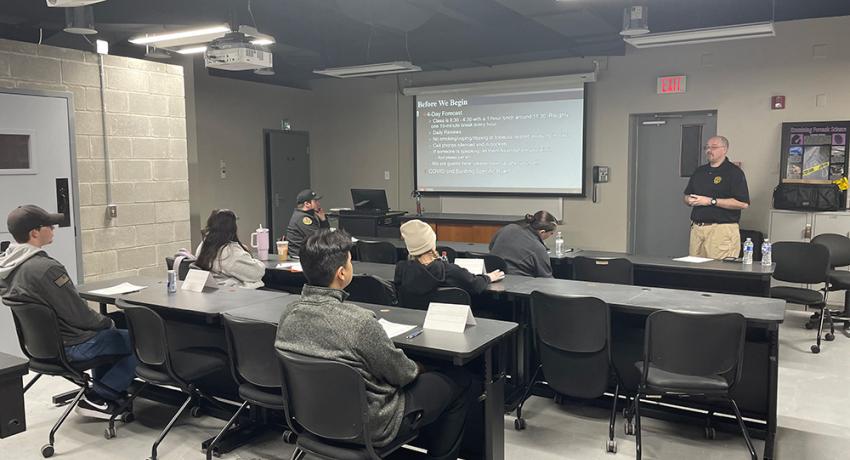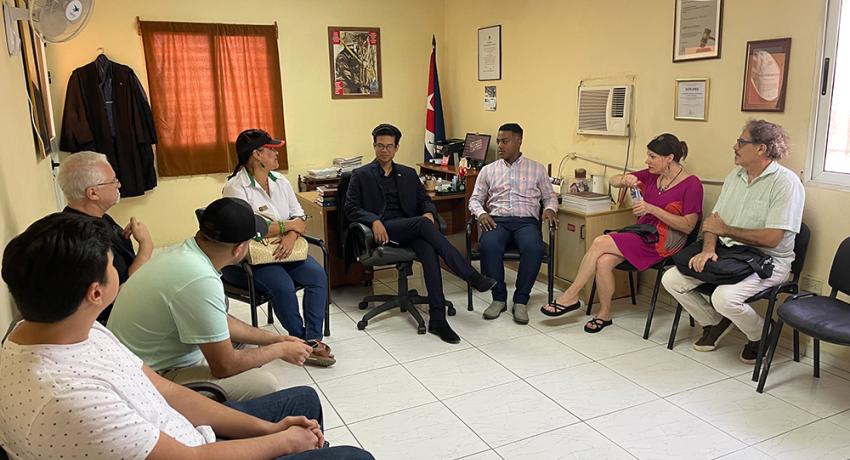The Criminal Justice Competition at Volunteer State Community College has been an ongoing community outreach program for the last four years. In February 2023, the competition involved eight local high schools, one college, ten law enforcement agencies, and several non-law enforcement agencies. The event brought over 50 professionals in contact with over 200 criminal justice students. Over thirty middle-college students helped with being role players. The event serves several purposes. One is to validate the teaching and instruction that the students are receiving in high school and college. It also places students in direct contact with professionals in the field in which they want to study. This leads to internships, reserve officer positions, and other job opportunities. The event shows local police departments that there are quality candidates out there who can be added to their applicant pool. It also brings a fun and competitive element to the criminal justice field.
The 10 law enforcement challenges included:
- Appellate Argument
- Crime Scene Investigations
- Domestic Violence Scenario
- Felony Situation
- Field Sobriety Stop
- Job Interview
- Radio Usage - Communications
- Routine Traffic Stop
- Unknown Situation
- Use of Force Scenario
Read more about this competition
Visiting POST and TLETA
The students in the criminal justice program were allowed to visit POST and TLETA. POST stands for Peace Officer Standards and Training. The students had a conversation with the assistant director of POST, in the room where hearings are held in order to determine if officers will lose their law enforcement certification. POST had recently held hearings for officers in the Smyrna case and was going to host officers from the Memphis Police Department that week. From there, the officers were able to visit TLETA. TLETA stands for Tennessee Law Enforcement Training Academy. They were able to see what it takes in order to be certified as an officer in the State of Tennessee. This included all the classroom work, defensive tactics, driving, and shooting. The Director of POST and TLETA (same person) stopped and fielded questions from the students outside of the firing range.
Hosting a Certification Class
Vol State was the first community college to host a certification class for corrections through TCI (Tennessee Corrections Institute). The Governor created a grant, which Vol State was awarded, in order to create a more educated criminal justice field. Vol State was the first college to take advantage of this opportunity and offer the class. The class consisted of students from Vol State and officers from Sumner County. A couple of students are both employees at the Sumner County Sheriff's office and students at Volunteer State. This class licenses students and allows them to be employed as correctional officers in the State of Tennessee.
Learning About Criminal Justice Systems Outside of the United States
Vol State’s criminal justice program has secured a private donor to help learn about criminal justice systems outside of the United States. This year the students traveled to CUBA for their study abroad experience. Cuba has just gone through several transitions; adopting a new constitution and providing lots of reforms in their criminal justice system. Students met with several high-ranking judges, two of whom were actually involved in the writing of the new constitution. Students’ views were challenged concerning the United States criminal justice system, as they were able to compare and contrast the differences in the counties and their systems. Cuba follows the inquisitorial system developed in Rome and used in many French and Spanish-settled countries. The United States follows the common law system passed down from England. The differences in the systems and being subjected to a culture that has a totally different view of historical events challenged students to open their minds to other viewpoints while also appreciating what most take for granted in the United States.
To check out the criminal justice program here at Vol State, visit Criminal Justice Program.







